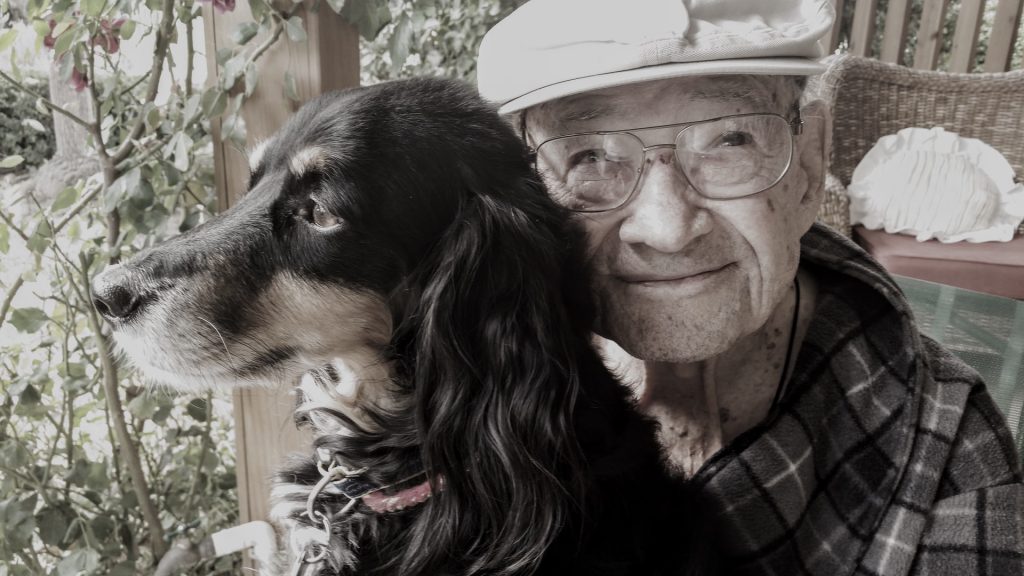It is not easy for any of us to bear the loss of a beloved pet, but seniors may find themselves especially stricken with grief. Many of the physical and societal struggles that can come with aging, like losing the ability to take care of oneself or staving off loneliness, are relieved by a relationship with a pet. They offer companionship and active engagement, as well as a sense of purpose and duty that is relatively uncomplicated compared to the demands of a job or raising a human family. This unconditional love and regular physical affection can be especially rejuvenating for seniors who are not always properly appreciated by the humans around them. The sudden loss of this relationship, then, is often very upsetting, sometimes to the point of depression.
It is important to keep in mind, too, that when we lose a pet or sense we are about to lose a pet, many of our own unresolved feelings and ideas about death and grief that we’ve confronted in the past are likely to come. Not only are seniors generally closer to the day of their own death than those younger than them, they have also likely grieved more friends and family given the several decades they’ve enjoyed on Earth. These significant factors can contribute additional emotional weight to the death of a pet.
For these reasons, it is paramount that seniors who have just lost a pet are respected in their pain and are allowed ample time to grieve. If you are looking to support a senior in your life who’s just lost their pet, consider the following ideas:
- Encourage them to talk about the relationship they shared with their pet. Listen and ask neutral, open-ended questions about what their pet meant to them. Your loved one may appreciate the opportunity to reflect with you on what made their life with their pet so special.
- Help them honor any end-of-life logistics that may come up. This may include a small ritual or ceremony to honor their pet, or perhaps doing something intentional with their pet’s ashes after cremation. Take these gestures as seriously as you would a funeral for a human being, even if you don’t understand your loved one’s attachment to their pet. The pain they are experiencing is common and real.
- Watch for warning signs of depression. Look for changes in sleep, diet, exercise, and general energy levels. If you notice any significant changes in your loved one’s mental or physical health, encourage them to seek professional treatment. Therapy can be one of the most healing, generative ways to process a death and its aftermath. No one can be forced to go to therapy, but suggesting the idea can be a powerful expression of love and investment in your elderly loved one’s well-being.


